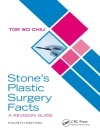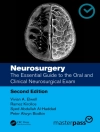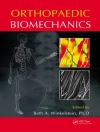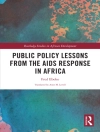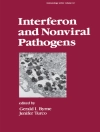This book aims to aid the selection of the most appropriate methods for use in early phase (1 and 2) clinical studies of new drugs for diabetes, obesity, non-alcoholic fatty liver disease (NAFLD) and related cardiometabolic disorders.
Clinical research methods to assess the pharmacokinetics and pharmacodynamics of new diabetes drugs, e.g. the euglycemic clamp technique, have become well-established in proof-of-mechanism studies. However, selection of the most appropriate techniques is by no means straightforward. Moreover, the application of such methods must conform to the regulatory requirements for new drugs.
This book discusses the need for new pharmacotherapies for diabetes, obesity and NAFLD and the molecular targets of drugs currently in development. Emerging technologies including functional imaging, circulating biomarkers and omics are considered together with practical and ethical issues pertaining to early phase clinical trials in subjects with cardiometabolic disorders.
Translational Research Methods in Diabetes, Obesity, and Non-Alcoholic Fatty Liver Disease is of interest to biomedical scientists, pharmacologists, academics involved in metabolic research and clinicians practicing in these specialties.
Innehållsförteckning
Part 1: Review of Clinical Investigative Methods.- Chapter 1: Quantifying Insulin Action in Humans.- Chapter 2: Assessment of Islet Alpha- and Beta-Cell Function.- Chapter 3: Pharmacokinetic and Pharmacodynamic Assessment of Novel and Biosimilar Insulins.- Chapter 4: Measurement of Energy Expenditure.- Chapter 5: QUANTIFYING APPETITE AND SATIETY.- Chapter 6: Non-invasive quantitative magnetic resonance imaging and spectroscopic biomarkers in nonalcoholic fatty liver disease and other cardiometabolic diseases associated with ectopic fat deposition.- Chapter 7: Structural and Functional Imaging of Muscle, Heart, Endocrine Pancreas and Kidneys in Cardiometabolic Drug Development.- Chapter 8: Positron emission tomography and computed tomography measurement of brown fat thermal activation: key tool for developing novel pharmacotherapeutics for obesity and diabetes.- Chapter 9: Isotopic Tracers for the Measurement of Metabolic Flux Rates.- Chapter 10: Role of Tissue Biopsy in Drug Development for Non Alcoholic Fatty Liver Disease and Other Metabolic Disorders.- Chapter 11: Utility of Invasive and Non-invasive Cardiovascular Research Methodologies in Drug Development for Diabetes, Obesity and NAFLD/NASH.- Chapter 12: Omics: Potential role in early phase drug development.- Part 2: Preclinical Drug Development and Transitioning to Clinical Studies.- Chapter 13: Peptide Drug Design for Diabetes & Related Metabolic Diseases.- Chapter 14: ANIMAL MODELS OF TYPE 2 DIABETES, OBESITY AND NONALCOHOLIC STEATOHEPATITIS – CLINICAL TRANSLATABILITY AND APPLICABILITY IN PRECLINICAL DRUG DEVELOPMENT.- Chapter 15: Drug Development for Diabetes Mellitus: Beyond Hemoglobin A1c.- Chapter 16: Emerging Circulating Biomarkers For The Diagnosis And Assessment Of Treatment Responses In Patients With Hepatic Fat Accumulation, Nash And Liver Fibrosis.- Chapter 17: Quantitative Approaches in Translational Cardiometabolic Research: An Overview.- Chapter 18: Transitioning from Preclinical to Clinical Drug Development.- Chapter 19: Regulatory Considerations for Early Study and Clinical Development of Drugs for Diabetes, Obesity, Non Alcoholic Steatohepatitis (NASH) and other Cardiometabolic Disorders.- Chapter 20: Early Phase Metabolic Research with Reference to Special Populations.
Om författaren
Andrew J Krentz, Senior Research Fellow at Pro Sciento, is a clinical academic with more than three decades of experience in diabetes and cardiometabolic medicine. He is currently a visiting professor at the University of Reading, UK. Prior to this he was a senior physician and senior lecturer at University Hospital Southampton, UK. He has held research positions at the University of California San Diego and the New Mexico School of Medicine, USA. He is editor-in-chief of ‘Cardiovascular Endocrinology & Metabolism’ and has published more than 100 articles in peer-reviewed medical journals.
Christian Weyer is a pharmaceutical executive with over 20 years of experience in the drug development focused on diabetes, obesity, and NAFLD/NASH. As head of R&D at Amylin Pharmaceuticals and Intercept Pharmaceutics, he has contributed to the development, regulatory approval and/or life cycle management of several first-in-class medicines in the areas of type 1 and type 2 diabetes, lipodystrophy, and progressive non-viral liver diseases, as well as to the mid and late-stage development of novel drug candidates for obesity and NASH. Dr Weyer previously served as President and Chief Development Officer at Pro Sciento and as visiting fellow with the National Institutes of Health, NIDDK, and has authored over 100 peer-reviewed publications in the field of endocrinology and metabolism.
Marcus Hompesch, Chief Executive Officer and Chairman of the Board, Pro Sciento is a recognized expert in the field of metabolic diseases, a licensed physician and entrepreneur. His experience in designing, performing and publishing clinical studies in metabolic diseases has been gained through over 20 years of work as clinician and clinical researcher. To date Dr Hompesch has authored more than 90 publications, has been editor and author of a textbook on translational research methods and is editor-in-chief of the journal ‘Endocrinology, Diabetes & Metabolism’. He established Pro Sciento, Inc., CA in 2003


